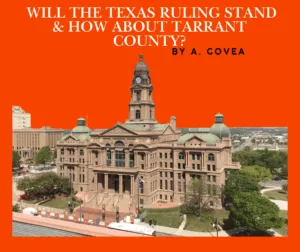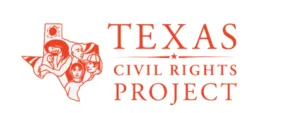
The Race and Culture Task Force was established shortly after Jacqueline Craig’s arrest in 2016 by then Mayor Betsy Price. Ms. Craigs’ case gained attention because of the treatment she received from the police officer on the scene. Especially since she called the police herself after a disagreement with her neighbor. Leaked video from the incident showed the officer arguing with her and then wrestling her to the ground. And if I remember correctly, her daughter also suffered mistreatment by law enforcement.
This caused the public to hold protest rallies which echoed others around the nation which centered on police overreach and violence against citizens they were supposed to protect. According to reports published Ms. Craig had all charges against her dismissed and the city awarded her $1500,00 in a lawsuit.
Distrust increased after Atatiana Jefferson, a 28-year-old Black woman, was killed in 2019 by a Fort Worth police officer in her own home. A neighbor noticed that Ms. Jeffersons door was open, so as a concerned neighbor she called the police department as a non-emergency. This proved to be fatal as the responding police officer shot and killed Ms. Jefferson through her homes’ window. Police Officer Aaron Dean was arrested several months later and charged with murder. Once Mr. Dean was convicted of manslaughter and sentenced to 12 years in prison. Despite the initial consensus that a murder charge was justified, the case at least demonstrated a measure of justice compared to other incidents across the country.
Bob Ray Sanders, former senior editor and columnist at Fort Worth Star Telegram, chaired the Task Force. Mr. Sanders was well known as a community leader and was serving as Communications Director with the Black Chamber of Commerce. It was reported that Mr. Sanders was concerned that their recommendations might not be accepted by the city council. His conclusions were validated to some extent, as certain recommendations were accepted while others were not. And one key recommendation was not.
The police advisory board which would serve as a citizen’s review board and have investigative powers was not. In 2020, the Office of Police Oversight Monitor was established. It would establish criteria for the Advisory board and oversee the department’s accountability. It was shepherd in by the new and current Mayor Mattie Parker. This board would not have actual oversight but would be more of an advisory board. This entailed reviewing police policies and practices and to serve as additional avenue for community input.
The vote for the Advisory Board proposed by the Race and Culture Task Force was held on November 9th, 2022. Before the vote, community members urged the City Council to approve the Board. With the majority being minority residents and community leaders that at times let their passion show. Many also spoke against the measure which some described racially divided.
The measure failed by a 5-4 vote, disappointing most speakers. With all the Black council members voting to support the full four were Gyna Bivens, Jared Williams, Chris Nettles, and Elizbeth Beck. The no votes were Carlos Flores, Michael Crain, Alan Blaylock, Leonard Firestone, and Mayor Mattie Parker.
The majority of dissenting votes were attributed to concerns that the establishment of the board would be redundant to the responsibilities of the Office of Police Oversight Monitor. At last Saturdays’ Community Breakfast sponsored by LULAC Council 102 I asked again for an explanation. I posed the question to the Director of The Office of The Police Oversight Monitor and Councilman Carlos Flores. Council Member Flores suggested (Paraphrasing) there might be confusion over the different roles of the Citizens Review Board and the Oversight Board. This lack of clarity may have contributed to a majority no vote.
Additionally, many have interpreted the creation of the board as being anti-police or as a criticism of the police chief. The Police Officers Association’s political influence may have also led to its failure. Several major cities in Texas have established independent citizen mechanisms. I do not understand why Fort Worth does not. For the benefit of full disclosure, I participated in the process of trying to establish The Citizens review Board as a LULAC representative.
At the community breakfast that I mentioned earlier Ms. Sokunbi the Police Oversight Monitor Director, spoke about the they are engaged in. Next week I will provide more information about the Office of Police Oversight Monitor with contact information. However, as for the need for the Citizens Review Board it is something we must start again. And I will add that it should include the ability to investigate all the issues at the County Jail which would require the county buy in. Given recent history with County Judge I know that would be an uphill battle, but that is even more reason to start now. After the meeting, Council Member Flores told me he would be glad to meet to discuss it further. I will keep you updated as this work progresses.
By A. Govea – goveaalberto215@yahoo.com






